Eye Surgery
Your eye problem is
our concern

Mr Sal Rassam
MD DO FRCOphth
Senior Consultant
Ophthalmic Surgeon
Your Eye Doctor
Senior consultant and founder of Panacea Medical Centre. Qualified from the Royal College of Surgeons in Ireland. Gained his ophthalmic experience at various specialist hospitals in London and obtained his postgraduate qualifications from the Royal College of Surgeons and the Royal College of Ophthalmologists. He culminated his General Ophthalmic experience in disease of the eye and the latest microsurgical techniques in Cataract, Glaucoma and Anterior Segment Surgery. Subsequently he undertook a fellowship in disease of the Retina and Vitreoretinal Surgery at the Royal Victorian Eye and Ear Hospital in Melbourne, Australia. A passionate researcher spending over 2 years conducting research on Ocular Imaging, The Ocular Circulation, Glaucoma & Diabetic Eye Disease; the fruit of which was a “Doctorate of Medicine” postgraduate degree awarded by the National University of Ireland. He is an active member of several professional societies and a major contributor to research and the literature.
Eye Disease

Cataract
Very common condition causing blurring of vision, glare, double vision or rapid changes in glasses. It is where the natural lens in the eye looses it clarity and obstructs vision. Most common cause is age but can also occur in other situations such as trauma, medications and in association with other diseases. The normal treatment is surgery.
Cataract Surgery
Surgery involves removing the natural lens of the eye and replacing it with an artificial implant. There are many designs of implants available that will provide different ranges of vision and for different shaped eyes. At Panacea, the latest equipment are used in the assessment of cataracts that gives a fairly accurate predictions for surgery and outcomes.
Surgery is performed under eye drops with no injections involved as day surgery. Microincision techniques are utilised without the need for stitches. The minimal trauma to the eye allowing for rapid recovery and the return to normal activities.
The different implants that can be used can correct distance vision only or distance & near vision with multifocal implants. Toric implants can also be used to correct for existing astigmatism. Your eye surgeon will give you a thorough assessment and will advise you of the possible suitable implants and solutions.
Call us on 01903 234647 to arrange an appointment for assessment

Glaucoma
Referring to the most common type of glaucoma "Chronic Open Angle Glaucoma". It is a totally silent condition where eye pressure gradually increase causing damage to the nerve behind the eye resulting in gradual loss of peripheral field of vision leading to tunnel vision and eventual blindness. It runs in families and is very treatable with medications, laser or surgery.
Glaucoma Treatment
Assessment of glaucoma is complex and requires different tests looking at the eye itself as well as an assessment of visual fields, the topography of the nerve and the damage to the nerve fibres. Serial measurements over time is important to determine target treatment pressure and assess progress of treatment. The condition is lifelong and will require regular monitoring.
Initial treatment traditionally has been with eye drops. If that does not control the pressure then laser therapy can be applied or surgery.
Modern developments in Lasers and surgery with Microstents (MIGS) has lead the way to advances in management by the introduction of laser and surgery at early stages to obtain better control of glaucoma and for better compliance with treatment protocols.
Call us on 01903 234647 to arrange an appointment for assessment

Age Related Macular Degeneration
Is the most common of visual disability in the western world. As the name depicts, it involves degeneration of the centre part of the retina (Macula) responsible for reading & close vision. Central vision is the most important part of vision and when both eyes are affected, it can significantly impact daily activity. Two broad types have been described, the DRY and WET types.
Age Related Macular Degeneration
The condition advances with age and usually there is a genetic predisposition however environmental factors also have a role to play to include smoking, general health and life style.
The Dry type of the condition advances slowly and gradually over many years with gradual degradation of reading and central vision. The Wet type however, arise suddenly and advances quickly within weeks affecting vision and causing marked distortion of images.
The different types can be distinguished by comprehensive examination and ocular imaging. Advances in ocular imaging with Ocular Coherence Tomography Angiography have allowed a rapid and totally noninvasive means to look at the circulation of the retina and assess leakage in cases of Wet Macular Degeneration.
While the Dry type is untreatable, your eye doctor will be able to give you advice on how to slow the progression of the condition.
The Wet type is now amenable to treatment with different medical agents. After thorough assessment your eye doctor will discuss the various options and treatment can be initiated the same day.
Call us on 01903 234647 to arrange an appointment for assessment

Epiretinal Membranes
Is also known as Celluphane Maculopathy or Macular Pucker. A common condition where a thin layer of fibrous tissue grows over the surface of the retina which is the light-sensitive film at the back of the eye. When this fibrous membrane contracts, it wrinkles the retina causing blurring of vision and distortion of images.
Epiretinal Membrane
Epiretinal membrane is very common with age with estimated incidence of 20% in those over 75 years of age. It can also occur in association with other eye conditions and diseases.
In most cases the membrane does not affect vision and is asymptomatic. However, in a small portion of cases, the membrane resides over the macula which is the centre portion of the retina providing the highest resolution of vision. The contraction of this membrane will crease the macula resulting in distortion of images and viewing straight lines will become wavy, kinked or blurred.
As long as the vision is unaffected no treatment is required. In situations when the vision proves to be symptomatic & progressive then surgery is indicated with Vitrectomy.
The operation is carried out under local anaesthetic using state of the art sutureless key hole technique with minimum trauma and fast recovery. In most cases the vision recovers nicely. However, in cases of long standing membranes, some residual distortion may remain.
Call us on 01903 234647 to arrange an appointment for assessment

Macular Hole
A macular hole is a small break in the macula, located in the centre of the eye’s light-sensitive tissue called the retina. The macula provides the sharp, central vision we need for reading, driving, and seeing fine detail. A macular hole can cause blurred and distorted central vision where straight lines become wavy or gaps missing in vision.
Macular Hole
The main reason for the development of macular hole is degeneration and collapse of the Vitreous (Jelly-like material occupying the centre of the eye) with age and is common in those over 60 years. It can also occur secondary to short-sightedness, injury and other eye conditions.
When macular hole develops in one eye, there is a 15% chance of the same thing happening to the other eye.
In most cases the macular hole is treatable with surgery (Vitrectomy). The operation is carried out under local anaesthetic using state of the art sutureless key hole technique with minimum trauma and fast recovery. However, vision improvement is usually slow and gradual. The success rate is approximately 90% with some recovery or improvement in vision.
Call us on 01903 234647 to arrange an appointment for assessment

Flashes & Floaters
Flashes are bright sparks of light seen usually in the dark. Floaters are grey/black tiny shapes that can take any form or size. They are usually seen against a bright background such as a blue sky. In most cases, these symptoms are benign but in small number of cases it could indicate serious retinal problem and may require urgent treatment.
Flashes & Floaters
The VITREOUS is a jelly-like substance that occupy the centre part of the eye. This structure is normally clear in the young and is loosely adherent to the retina (light-sensitive film at the back of the eye). With age the vitreous tends to degenerate, collapse and detaches away from the retina.
When the vitreous collapses, it forms condensations which is perceived as floaters when looking at bright backgrounds. On the other hand, flashes appear as bright sparks of light usually seen in the dark. They arise from irritation of the retina by the peeling vitreous.
As the vitreous collapses and peels away from the retina, it can potentially tear the retina in the process which will then lead on to a detached retina. Once the retina detaches, vision will drop and and if not treated in a timely manner, vision may not recover.
Treatment of retinal tears without detachment is simple and usually done in outpatients using laser or cryotherapy with rapid return to normal activities. On the other hand, detached retina will often require invasive surgery and the recovery could be prolonged with no guarantee of total visual recovery.
For these reasons, symptoms of flashes or floaters are treated seriously and will need to be examined by a specialist to make sure that no harm has come to the retina.
Call us on 01903 234647 to arrange an appointment for assessment

Blepharitis
The eyelids have numerous glands that secrete oil like material to form part of the lubrication to the eye. In some susceptible individuals, these secretions thicken with age and accumulate on the lashes like dandruff. It results in intense irritation of the lids, recurrent eye infections and symptoms of dry eyes. It is a chronic condition but can be controlled.
Blepharitis
The accumulated secretions on the lids act like a culture medium for organisms to grow on including bacteria and Demodex Mites parasite.
There is usually a genetic predisposition and comes with age. Can also be associated with other conditions such as Acne Rosacea.
While it is a benign condition, the consequences can be quite debilitating. The earliest sign is irritation of the lids progressing to frequent infections with cysts and possible ulceration of the lids. The loss of the oil lubrication means that the eyes will dry out quickly causing glare, irritation and disturbance in vision.
While the condition is chronic, controlling it is straight forward and can be quite effective. It may involve lid hygiene, the use of medications and supplements.
A comprehensive assessment is important to determine the severity of the condition and advice can be give accordingly.
Call us on 01903 234647 to arrange an appointment for assessment
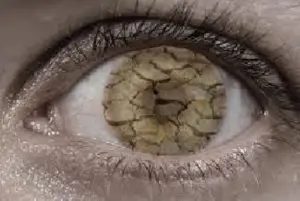
Dry Eyes
Proper function of the eye is dependent on good lubrication by the tear film on the eye. Loss of one or more component of the tear film can result in the most severe eye pain to ulceration and loss of vision. Symptoms can vary from mild irritation to stinging, excess watering, difficulty with vision, pain during night time and difficulty opening the eyes in the morning.
Dry Eyes
Normal tear film of the eye consists of three layers, an inner mucous layer, middle watery layer and outer lipid layer. Each part is produced by a different system in the eye and harmony between the different systems is important to maintain the exact equilibrium. Moreover, blinking plays an important role in spreading the tears over the eye evenly.
Age, various diseases of the eye, eyelid conditions and other systemic conditions can upset this balance.
In the absence of major eye disease, eyelid conditions or systemic disease, lubricant eye drops may be all that is required to obtain relief from the symptoms. The drops will need to be instilled frequently and spread during the day.
In severe and secondary cases to other conditions, more drastic measure may be required. It may involve the use of certain medications, contact lenses or surgery.
Proper assessment by an experience eye doctor is important to determine underlying conditions and a treatment plan can then be instigated according to the severity.
Call us on 01903 234647 to arrange an appointment for assessment
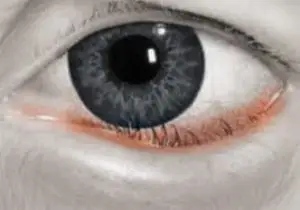
Entropion & Ectropion
These conditions constitute Lid Malpositioning problems. In ENTOPION the lower eyelid turns inwards towards the eye. In ECTROPION the eyelid rotates outwards away from the eye. Both of these conditions will produce variable amount of pain, irritation, scratching, redness, crusting and watery eyes. In chronic cases, secondary infections and scarring of the front of the eye may results.
Entropion
The eyelids have an important role acting as a barrier to protect the eyes and the lashes have a defense mechanism. The eyelid is sitting tight against the eye allowing the spread of lubricating tears with each blink and directing the excess tears away from the eye. The lashes normally point outwards away from the eye and help to trap particles from going into the eye. In older adults, the lid tissue and skin loose their elasticity & strength. The result is either inward or outward turning of the eyelid.
When they turn inwards (Entropion) the lashes become directed towards the eye, scratching the front of the eye with each blink producing the discomfort, irritation, excess mucous production and injury to the cornea (front window of the eye)
When the lids turn outwords (Ectropion) they will sag with gravity pulling away from the eye and exposing the inner red tissue of the eye. This will affect the normal distribution of the tears across the eye and will no longer direct the tears to the drainage system. Instead, the tears will dribble down the cheek accentuating the irritation, dryness of the eye and pain.
Both of these conditions, if not treated can result in recurrent infections and eventual scarring of the front of the eye.
The two condition usually only affect the lower lids. In mild or intermittent cases, conservative management can be utilised with the use of lubricating ointment and taping of the lids to the skin. However, in persistent cases surgical correction is necessary. The surgery involves tightening the lid and redirecting the eyelid muscles to work at turning the eyelid to the correct position.
Call us on 01903 234647 to arrange an appointment for assessment
Modern Technology in Eye Diagnosis and Treatment
XEN Gel Glaucoma Stent
Latest in glaucoma managment. The XEN® Gel Stent is a surgical implant designed to lower high eye pressure in open-angle glaucoma patients where previous surgical treatment has failed and/or medications alone were insufficient (also known as refractory glaucoma).

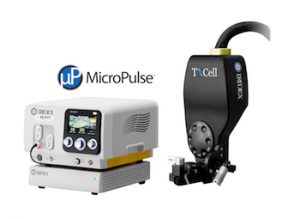
Micropulse Subthreshold Retinal Laser
Latest technology in laser treatment for many retinal conditions and glaucoma. This technology avoids the thermal effects of conventional laser treatments that causes a lot of collateral damage. Making the treatment highly effective with minimum or no side effects.
YAG Laser
Is a type of laser used in the treatment of eye conditions such as thickening of the capsule of the eye after cataract surgery (Posterior Capsule Opacificiation) and in the treatment of Narrow Angle Glaucoma. YAG is short for Nd:YAG (nedymium-doped yttrium aluminium garnet) crystal used for solid state laser.
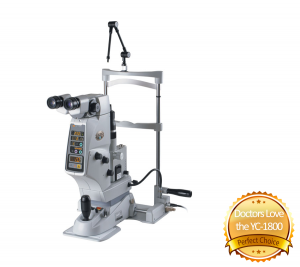
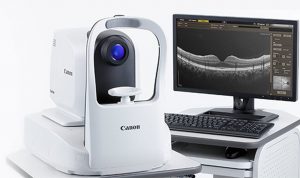
Ocular Coherence Tomography & Angiography
The latest technique in ocular imaging of the retina & retinal circulation which is totally safe and non-invasive without the use of any injections of contrast medium. It allows rapid diagnosis of many conditions including Glaucoma, Age Related Macular Degeneration, Diabetic Eye Disease any numerous other eye conditions.
Pentacam
The Gold Standard in anterior segment tomography, the Contact-free Pentacam® measurement provides the basis for precise and reliable diagnostics and successful treatment of the anterior segment conditions including corneal disease, astigmatism and accurate assessment of lens implants especially after refractive corneal laser treatment.

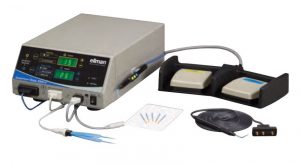
Eye Lid Surgery
Radiofrequency energy is used to cut through tissue providing a very clean cut with minimal trauma to the tissue and virtually no bleeding. It is better and more precise than the sharpest knife used in surgery. Very useful to remove blemishes, moles, lesions, cysts and removing persisting ingrown eyelashes through electrolysis.
Retinal Surgery
Vitrectomy is a technique to treat many conditions of the retina and vitreous including Retinal Detachments, Macular Holes, Epiretinal Membranes, Vitreous Floaters and many other conditions. It is minimally invasive using key hole surgery and without the need for any sutures. That allows rapid recovery.
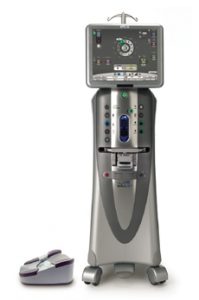
The ultimate in Eye Care

Vision is so important to us and we take it for granted until something happens. We provide comprehensive eye treatment to most conditions. Our wide ranging diagnostic equipment means you get your diagnosis done immediately reducing stress & saving time. Modern surgical techniques & laser treatment means you get the best eye treatment with fast recovery. Our specialist eye doctors have the highest qualifications with a wide range of experience. The hospital provides a pleasant and safe environment.
There is nothing more worrying than experiencing eye problems. You want fast and efficient solution. Our aim is to provide you with the best experience at an affordable price. Please click on the button to view the list of fees for most common tests and procedures. For more complex conditions, we will provide you with a fair and sympathetic price.
Price List for Common Procedures
| Initial consultation | £175-£250 |
| Subsequent Consultations | £120-£180 |
| Ocular Coherence Tomography | £150.00 |
| Visual Field Testing | £55.00 |
| Biometry | £75.00 |
| YAG Laser Capsulotomy | £550.00 |
| Laser to Retina | £1,400.00 |
| Laser Trabeculoplasty | £1,400.00 |
| Intravitreal Triamcinolone Injection | £650.00 |
| Intravitreal Avastin Injection | £800.00 |
| Intravitreal Eylea Injection | £1,400.00 |
| Intravitreal Vabysmo Injection | £1,400.00 |
| Intravitreal Lucentis Injection | £1,700.00 |
| Cataract Surgery (Standard Implant) | £2,390.00 |
| Cataract Surgery (Enhanced Vision Implant) | £2,840.00 |
| Cataract Surgery (Toric Implant) | £2,840.00 |
| Cataract Surgery (Multifocal Implant) | £3,115.00 |
| Cataract Surgery (Toric + Multifocal Implant) | £3,490.00 |
2021 © Panacea Medical Centre
Terms & Conditions of Service
Definition: Any references to Panacea within this document mean Stereopsis Ltd, trading as Panacea at 7a Shelley Road, Worthing BN11 1TT.
Facilities: Panacea will provide accommodation, nursing care and other services as appropriate at the request of the medical practitioner/s who is/are supervising your care.
Valuables: Please do not take any valuable items to the hospital/clinic at which you are being treated. Panacea will not accept liability for any loss or damage to any personal items or valuables.
Complaints: Panacea has in place a complaints procedure and an access to personal data procedure, details of which can be obtained from your surgeon’s medical secretary.
Independence of Medical Consultants: Medical Consultants who work at Panacea are self-employed independent practitioners, they are not employees. Panacea provides practicing privileges to Medical Consultants based on their abilities and registrations with the relevant professional body i.e. the GMC. Panacea is not responsible for the advice, decisions and treatment provided by the Consultant. The Medical Consultant remains fully liable for your medical care and the hospital/clinic at which you are being treated cannot accept any liability for his/her practice. Medical Consultants must adhere to Panacea’s policies and procedures and all relevant regulatory and legal codes of conduct. You may need to contact your Medical Consultant separately from Panacea when dealing with some matters including billing and appointment booking. Your medical practitioner should make you aware where this is the case and also of any other contractual arrangements which fall outside of the scope of this agreement.
Outcomes: Panacea will always endeavor to provide the patient with the best possible outcome. All patients are unique however and there can be biological and other reasons, where outcomes may not be as expected or where the result does not meet the patients’ expectations. Panacea and it’s consultants cannot provide any guarantees or warranties of the level of success of the outcome of your medical or surgical treatment.
Complications & Further Treatment: Patient’s individual response to treatments can vary. Complications and adverse events can occur for a variety of reasons, including an unexpected response, reaction to medications, inflammation, infection, or other reasons. Further intervention may be required and Panacea will endeavor to keep any additional costs to a minimum. In advance of any treatment, your consultant will the risks involved.
Unrelated conditions: Sometimes during the investigation and treatment of one medical condition another unrelated condition relating to the same or another part of the body may be found. Where this is the case you may be recommended for further review or treatment at the prevailing consulting and treatment rates.
In the event of an emergency the patient will be transferred to NHS care, subject to the emergency care protocol as defined by the NHS.
Provision of Services: The hospital/clinic selected by your surgeon will provide accommodation, nursing and other services to you at the request of the medical practitioner who is admitting you to hospital and under whose supervision your medical care remains.
Professional Fees: You will be charged either on a standard pricing system or an IPPP (Inclusive Private Patient Package) and you will be informed about those charges before you receive your treatment:
- The standard pricing system means that you are charged for your consultations, treatment and ancillary items separately. In these cases you will receive one bill from your medical consultant for the work they have done and another by the hospital covering the hospital costs and fees.
- The IPPP (Inclusive Private Patient Package.) pricing system means the charge for your treatment is fully inclusive of hospital fee, surgeon’s fee, anaesthetist’s fee and may include a follow up consultation, which would be agreed with you beforehand in writing. Fees for services provided by medical consultants, general practitioners and anaesthetists outside of the IPPP charge quoted by Panacea to you, are additional unless you are admitted through the NHS.
Payment Terms: Panacea requires all patients to provide valid credit/debit card details prior to patient appointment/admission which will be used to collect any outstanding amounts in respect of:
- Services where Panacea does not deal directly with the patients’ insurer.
- Services not covered in whole or in part, by the patient’s insurance company or in the case of patients paying for their own treatment, or the NHS.
- Consultants’ professional fees (where applicable), which are not covered in the IPPP.
- Any unpaid expenses.
Insured Patients:
- Direct settlement by insurance companies: CONFIRM THAT YOUR COVER IS ADEQUATE. The credit/debit card details supplied to Panacea pursuant to clause 11 will be used for any shortfall and/or outstanding balances as in clause 16. If your insurance operates a direct settlement scheme, Panacea will send your account and claim form to the insurance company for payment on your behalf. So that we can do this, you will need to obtain pre-authorisation in advance in respect of all tests and treatments that you are to receive. You will also need to provide us with a completed and signed claim form before you are discharged from hospital. If your insurance company does not pay the account in full within 30 days from the date you were discharged, outstanding balances will be notified to you by letter. You will have 21 days from the date of your letter to query this outstanding payment before your credit/debit card is debited with the outstanding balance. A receipt will be provided on request.
- No direct settlement scheme: If your insurance company does not operate a direct settlement scheme or if you are unable to provide us with a completed and signed claim form, you must pay your account in full on the day of your appointment/tests/treatment whether as an Inpatient or an Outpatient. The credit/debit card details supplied to Panacea pursuant to clause 11 will be used for outstanding balances.
Payment by Third Parties excluding Solicitor Requested Work: If your company, employer or other third party (except for NHS funded patients), agrees to pay your account, a letter of authority must be produced when you are admitted to the hospital/clinic. The letter will need to confirm that your account will be paid in full within 21 days from the date you are discharged from the hospital/clinic. Should the company, employer or other third party (except for NHS funded patients) not pay the account in full within 21 days from the date you were discharged, outstanding balances will be notified to you by letter. You will have 21 days from the date of your letter to query this outstanding payment before your credit/debit card is debited. The credit/debit card details supplied to Panacea pursuant to clause 11 will be used for outstanding balances.
Patients paying for their own treatment including Solicitor Requested Work: If you are not covered by medical insurance you must pay your account in full on the day of your appointment/tests/treatment whether as an Inpatient or an Outpatient. The credit/debit card details supplied to Panacea pursuant to clause 16 will be used for outstanding balances.
Confidentiality: The confidentiality of patient information is of paramount concern to Panacea. To this end Panacea complies with UK data protection law, including the EU General Data Protection Regulation (GDPR), the Data Protection Act 2018, and all applicable medical confidentiality guidelines issued by professional bodies including, but not limited to, the General Medical Council and the Nursing and Midwifery Council.
The Data Protection Officer: The Data Protection Officer (“DPO“) is responsible for data protection compliance and overseas Panacea’s compliance with data protection law. The DPO can be contacted by telephone on 01903 234 647, by email to info@panaceamc.co.uk specifying Data Protection Officer, or DPO as the subject. Alternatively write to the DPO at Data Protection Officer, Panacea Healthcare, 7A Shelley Road, Worthing, BN11 1TT
Privacy Notice: There is some basic information about privacy within this document but for full details of our privacy commitments please see our Privacy Notice. It is available on our website www.panaceamc.co.uk or otherwise ask a member of staff to give or send you a paper copy.
Clinical Information: Clinical information will be kept confidential and secure. It will only be disclosed to and received from those involved in your treatment or care, or to their agents and, if applicable, to any person or organisation who may be responsible for meeting your treatment expenses, or their agents. Such people or organisations may wish to send details of your treatment or expenses to companies outside of the European Economic Area for processing.
Storage of Information: Your records will be kept by Panacea in accordance with our Retention Policy. Medical Records and other Information has different retention periods. Please see our Records Retention Policy and also our Privacy Notice for further information about how we store your Information.
Research: Anonymous or aggregated data may be used by Panacea, or disclosed to others, for research and statistical purposes and registered with such bodies.
Access to Non-Clinical information: Access to non-clinical information may be granted by Panacea to others (for example medical insurers) on a strictly confidential basis in the course of, and for the purpose of, the efficient administration of Panacea (for example in connection with audit, systems development, managing or improving our services).
Fraud: Information may be disclosed with a view to preventing fraudulent or improper claims.
Telephone Calls: In the interest of continually improving their services to patients, your calls to Panacea, the hospital or clinic at which you are being treated, may be monitored or recorded. Private calls to and from patients in the hospitals/clinics are not recorded.
CCTV: Premises that are being used for your treatment by Panacea may be surveyed by CCTV and recordings may be retained for a limited period.
Ethnicity: Your ethnicity is asked to fulfill legal and regulatory obligations; in order to obtain a complete picture of factors that affect your health; and also to ensure that we can provide appropriate patient care to the whole community. For more information please ask for our guide, ‘Collecting Information about Ethnicity.’
Consent: At Panacea we do not need your consent for some types of information that we hold, for example where processing you information is necessary in order to provide you with the care that you need or when we have a legal or regulatory obligation to process it. You may, however, still choose to request that we don’t use your information in certain ways i.e. providing your information to third parties, (although this may mean we cannot pass information to important parties such as your Insurance company or your GP.) Please read our Privacy Notice for more information. If you still want inform us that you do not want us to process your data in a particular manner you should contact our Data Protection Officer who’s contact details are above. For other purposes it is important that we gain your consent to use your information. This includes marketing and promotions. Please read the below and let us know if you are happy for us to process your information for marketing and promotional purposes about our products and services or those or relevant third parties.
Privacy Policy
This website is operated by Stereopsis Ltd and whose registered address is 32 West Parade, Worthing BN11 5EF. (“We”) are committed to protecting and preserving the privacy of our visitors when visiting our site or communicating electronically with us.
This policy sets out how we process any personal data we collect from you or that you provide to us through our website. We confirm that we will keep your information secure and that we will comply fully with all applicable UK Data Protection legislation and regulations. Please read the following carefully to understand what happens to personal data that you choose to provide to us, or that we collect from you when you visit this site. By visiting www.panaceamc.co.uk (our website) you are accepting and consenting to the practices described in this policy.
Types of information we may collect from you:
We may collect, store and use the following kinds of personal information about individuals who visit and use our website:
Information you supply to us. You may supply us with information about you by filling in forms on our website. This includes information you provide when you submit a contact/enquiry form. The information you give us may include your name, address, e-mail address and phone number.
Information our website automatically collects about you. With regard to each of your visits to our website we may automatically collect information including the following:
- Technical information, including a truncated and anonymised version of your Internet protocol (IP) address, browser type and version, operating system and platform;
- Information about your visit, including what pages you visit, how long you are on the site, how you got to the site (including date and time); page response times, length of visit, what you click on, documents downloaded and download errors.
Cookies
Our website uses cookies to distinguish you from other users of our website. This helps us to provide you with a good experience when you browse our website and also allows us to improve our site. For detailed information on the cookies we use and the purposes for which we use them see our www.allaboutcookies.org
How we may use the information we collect
We use the information in the following ways:
Information you supply to us. We will use this information:
- To provide you with information and/or services that you request from us;
Information we automatically collect about you. We will use this information:
- to administer our site including troubleshooting and statistical purposes;
- to improve our site to ensure that content is presented in the most effective manner for you and for your computer;
- security and debugging as part of our efforts to keep our site safe and secure.
- our company would like to send you information about services that we think you might like, as well as those of our partners. If you have agreed to receive marketing, you may always opt out at a later date. You have the right at any time to stop Our Compan from contacting you for marketing purposes or giving your data to other members of our company.
This information is collected anonymously and is not linked to information that identifies you as an individual. We use Google Analytics to track this information. Find out how Google uses your data at https://support.google.com/analytics/answer/6004245.
Disclosure of your information
Any information you provide to us will either be emailed directly to us or may be stored on a secure server located near Worthing, England.
We do not rent, sell or share personal information about you with other people or non-affiliated companies.
We will use all reasonable efforts to ensure that your personal data is not disclosed to regional/national institutions and authorities, unless required by law or other regulations.
Unfortunately, the transmission of information via the internet is not completely secure. Although we will do our best to protect your personal data, we cannot guarantee the security of your data transmitted to our site; any transmission is at your own risk. Once we have received your information, we will use strict procedures and security features to try to prevent unauthorised access.
Third party links
Our site may, from time to time, contain links to and from the third party websites. If you follow a link to any of these websites, please note that these websites have their own privacy policies and that we do not accept any responsibility or liability for these policies. Please check these policies before you submit any personal data to these websites.
Your rights – access to your personal data
You have the right to ensure that your personal data is being processed lawfully (“Subject Access Right”). Your subject access right can be exercised in accordance with data protection laws and regulations. Any subject access request must be made in writing to Panacea Medical Centre. We will provide your personal data to you within the statutory time frames. To enable us to trace any of your personal data that we may be holding, we may need to request further information from you. If you have a complaint about how we have used your information, you have the right to complain to the Information Commissioner’s Office (ICO).
Changes to our privacy policy
Any changes we may make to our privacy policy in the future will be posted on this page and, where appropriate, notified to you by e-mail. Please check back frequently to see any updates or changes to our privacy policy.
Contact
Questions, comments and requests regarding this privacy policy are welcomed and should be addressed to The Manager, Panacea Medical Centre, 7a Shelley Road, Worthing, BN11 1TT.


